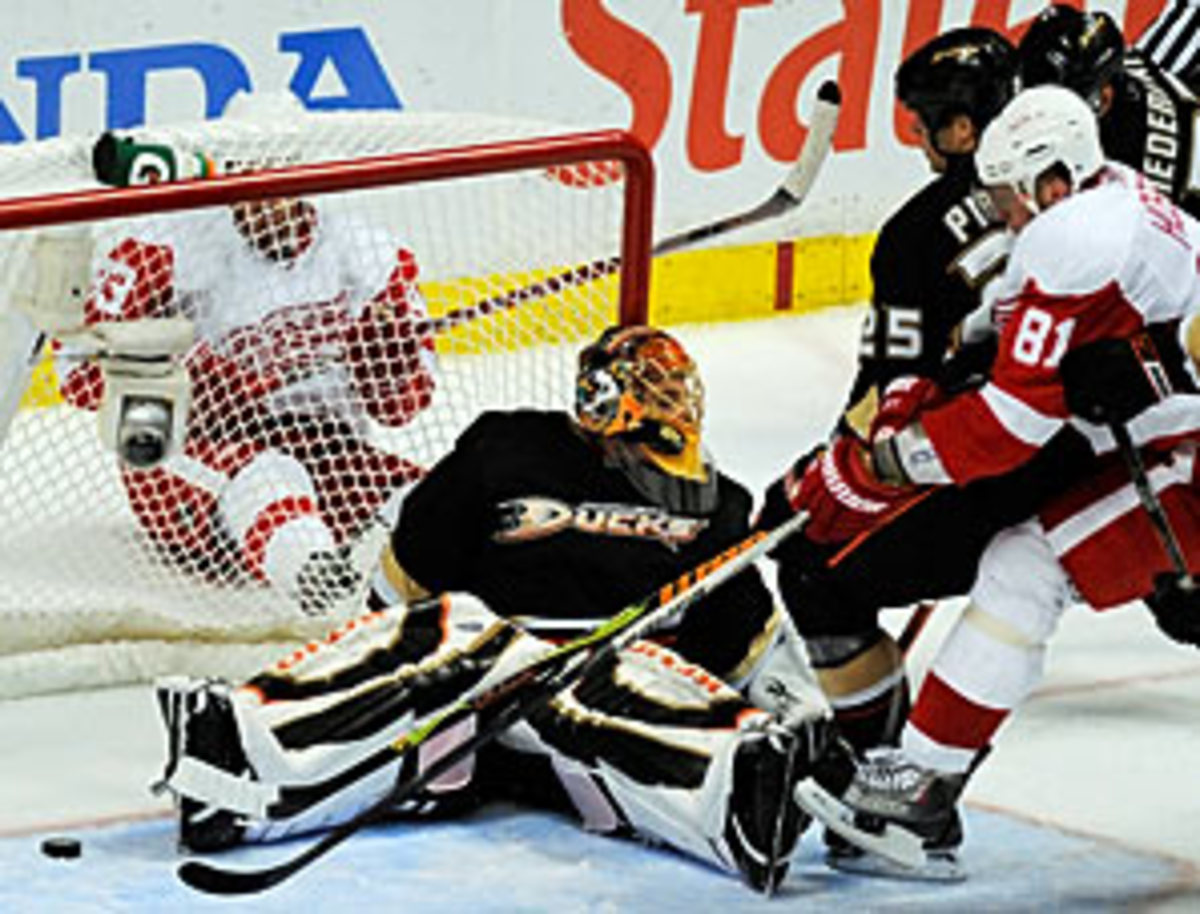Fate is cruel to Red Wings
Game Three of this series had a little bit of everything that makes playoff hockey the most hard-fought and compelling sports action there is. It also demonstrated how arbitrary the fate of competition can be.
What makes this series so good to begin with is that these teams have equal parts respect and loathing for one another. They have history and they know that survival is all about winning that one-on-one confrontation with the guy lined up against you each and every shift. It is as pure and basic as the game gets.
Both of these teams were ready for the rough going from the outset. Shots on goal barely beat the body check tally, giving an indication of just how hotly contested this game was. The Ducks set the tone, but the Red Wings would not relent. Only the superb goaltending of Jonas Hiller kept the Ducks from falling behind in the series. The 27-year-old Swiss native played with poise, polish and panache. The Red Wings pressed, but Hiller refused to yield.
Meanwhile, capricious breaks came into play.
When Teemu Selanne slash-skated through the neutral zone and opened the scoring by beating Chris Osgood with a sneaky backhander at 12:49 of the first period, one couldn't help but marvel. At the age of 38, the Finnish Flash still has the chops to get it done.
But on the same play, though, iconic warrior Chris Chelios couldn't make up the ground to catch Selanne after his defense partner Brett Lebda had his shot blocked, setting the events in motion. In the moment, Chelios looked all of his 47 years as well as a weak link on an otherwise impressive blueline. Lebda had two other shaky shifts in the period: one in which Osgood chewed him out and another in which he took a penalty. Despite that inglorious stretch, the backline pair battled on and fared better the rest of the way.
Such is the ebb and flow of playoff hockey. Stuff happens. You can't let the bad vibes linger. Even when the Ducks made it 2-0 midway through the game, the Red Wings weren't fazed. They redoubled their effort and carried the play the rest of the game. Henrik Zetterberg's power play goal roughly six minutes later reminded everyone -- including the patrons at sold-out Honda Center -- how fleeting momentum can be. As well as the home team had played thus far, the same was possible for its opponent the rest of the way.
Sure enough, the riled Red Wings outshot the Ducks 35-9 in the second and third periods after Anaheim held a 14-11 advantage in a rambunctious opening frame.
Unfortunately, this game's legacy will forever be about injury and a referee's premature whistle. Near the end of the second period, Ducks defenseman James Wisniewski took a Pavel Datsyuk slapshot to the ribs and a Tomas Holmstrom elbow to the head. He crumpled to the ice and had to leave on a stretcher. Then, with a little over a minute to go, Scott Niedermayer fumbled the puck from behind his net. The disc skittered precariously between the goal line and Hiller's outstretched leg, lying there in the crease in plain view to most as Marian Hossa swooped in to poke it home.
That the Red Wings had seemingly tied the game and left everyone in the building expecting overtime only made the reality sting a little more. Referee Brad Watson had lost sight of the puck and whistled it dead before it was knocked across the line. No goal was the ruling -- stated emphatically. Thus, this gem of hard-fought hockey between two old salts left you at once breathless and beguiled by the ultimate outcome.
As good as the game was, everyone deserved better, including Watson.






